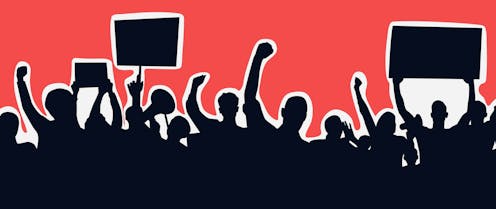Liberalism is in crisis. A new book traces how we got here, but lets neoliberal ideologues off the hook
- Written by Jane Goodall, Emeritus Professor, Writing and Society Research Centre, Western Sydney University

What is post-liberalism? That is no simple question, though the simplest responses are given by those who identify with it as a movement.
Adrian Pabst, author of the most influential book[1] on the subject, proposes it as a way out of the impasse created by the excesses of hyper-capitalism on the right and identity politics on the left. He calls for a renewed focus on the collective identities of community, family and location.
How We Became Post-Liberal – Russell Blackford (Bloomsbury)
British journalist David Goodhart envisages an “embedded individualism[2]”, which acknowledges the messy realities of contemporary life, while insisting on traditional values of interdependence, mutual trust and social duty.
Both writers may be seen as part of a distinctly British mode of centrism, which combines left-wing commitments to economic justice and workers’ rights with principles of social conservatism. As advocates for consensus politics, they present their views with a reasoned account of the factors contributing to the crisis in liberalism, avoiding shrill statements and overly contentious assertions.
But the movement has less temperate adherents. In the United States, Patrick Deneen[3] has made the title of his book Regime Change[4] a rallying cry, gaining him an enthusiastic audience among some Republicans in Washington.
The “regime” Deneen wants to change is the supposed cultural and institutional dominance of social liberalism – a longstanding shibboleth of the American right. He talks of a “distinct and pernicious” ruling class arisen from college campus liberals, who have created a new tyranny under which individual rights are the be-all and end-all.
The concept of post-liberalism, then, is ideologically ambiguous. It has the potential to embrace ideas from both left and right. Its one common assumption is that traditional liberalism – in its economic and social versions – is in trouble.

















